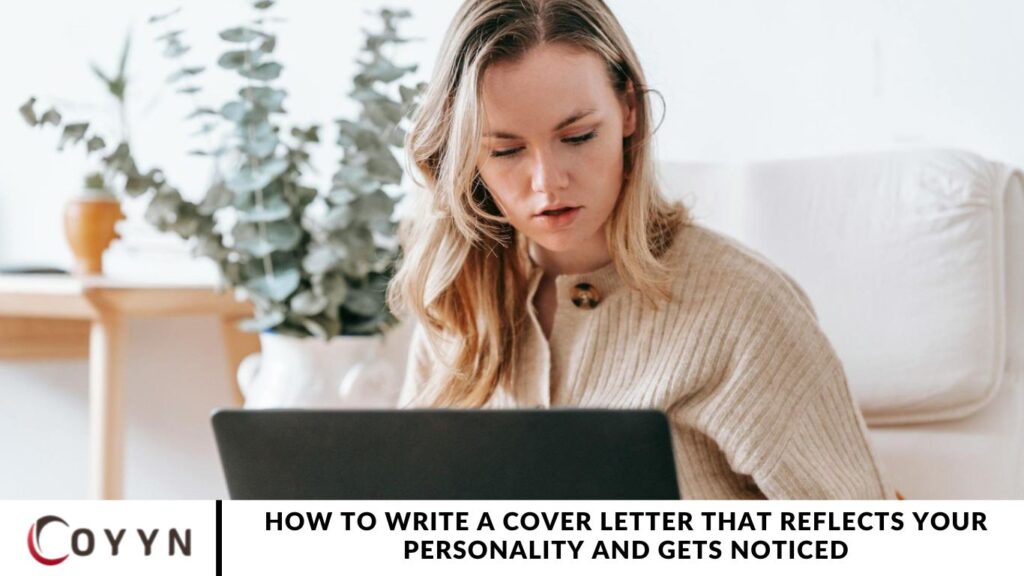Writing cover letters has always added extra stress to an already overwhelming and competitive job search. Every time I sit down to draft one, the same question runs through my mind: Do hiring managers even read these?
The reality is—they do. However, there are strategies that can make writing a cover letter much less stressful and significantly more effective.
To learn the best approach, I turned to Amy Gallo, editor at Harvard Business Review and author of How to Write a Cover Letter. Gallo shared expert advice on how to research correctly, create a strong opening, and clearly communicate the value you bring to a role. Thanks to her insights, I now know precisely how to craft a cover letter that grabs attention — and even wrote a new version that earned her approval.
Transcript
ELAINY Mata: So, you want to know how to tackle the cover letter? Honestly — same here. I’ll admit it: I hate writing cover letters. They feel awkward, stressful, and just downright intimidating. But as much as we might want to avoid them, cover letters are essential. It’s time we faced our fears and figured out exactly how to write one that actually sounds like us — and gets results.
Don’t worry, I’ve got you. We’re going to get through this together. These tips will make the process a lot easier, and if you’re ready to finally tackle that dreaded cover letter, stick around.
Right now, sitting in front of me are three cover letters I wrote for different jobs in the past — and honestly, I’m a little embarrassed to even look at them.
- “To whom it may concern… to whom it may concern… to whom it may concern.”
- “I would like to respectfully submit this cover letter. I would like to respectfully submit this cover letter.”
- “I am a passionate, detail-oriented person. I am a passionate, detail-oriented person.”
Reading them back, I realize that this doesn’t sound like me at all. It sounds like what I thought they wanted me to say. Honestly, I might as well have just written: Hire me. Please.
To figure out how to write a cover letter that feels authentic and professional, I turned to Amy Gallo, a Harvard Business Review editor and the author of one of their most popular articles, How to Write a Cover Letter.
AMY GALLO: First of all, you’re not alone. I literally write about how to write cover letters — and I still hate writing them, too.
ELAINY MATA: Amy has done the research, spoken to experts, and broken the process down step-by-step. Now, I’m going to share exactly what she taught me so you can write a cover letter that gets noticed (without losing your mind).
Make it one page
- ELAINY MATA: So, how long does a cover letter really need to be?
- Just one page. That’s it.
- AMY GALLO: Exactly. Don’t try to cheat the system by shrinking the font to eight points or stretching the margins. Focus on fitting the most essential information onto a single page — clearly and concisely.
Do research and find a name.
Say you’re applying for a job at Harvard Business Review. Your first move? Head to the company’s website, visit the “About Us” page and read through the company’s mission statement, values, and overall tone. Understand what the company stands for and what they’re looking for in a candidate.
That’s the broad overview — but now, let’s go deeper. Check out the company’s LinkedIn page, their Twitter feed, and other social media profiles. Look at what they’re posting, who they’re engaging with, and the topics they’re focusing on right now. This helps you get a current, real-time sense of what’s important to them — and what you should highlight in your cover letter.
Finally, track down the hiring manager’s name. Addressing your cover letter to a real person — instead of “To Whom It May Concern” — immediately makes it more personal and professional. Sometimes, you’ll need to do a little detective work: search LinkedIn, see who posted the job, or check who’s sharing it within their network.
On LinkedIn, you can often find out who posted or promoted the job. Even if you’re not 100% sure they’re the hiring manager, it still feels more personal. Some people even reach out and ask directly: “Hi, could you let me know who the hiring manager is for this role? I’d love to address my cover letter properly.” It never hurts to ask.
Start strong
ELAINY MATA: Chances are you’ve written something like this before:
“Hi, my name is William. I’m based at 3800 Rinehart Road
Fort Lauderdale and I’m applying for How to Write a Cover Letter That Reflects Your Personality and Gets Noticed.”
No, no, no — don’t do that.
Hiring managers are sifting through a massive stack of cover letters. You need to grab their attention from the very first line.
Amy, can you share an example of a bold, attention-grabbing opening for a cover letter? (I promise I won’t steal it.)
AMY GALLO: You’re totally allowed to steal it — in fact, everyone should:
“I saw your listing on coyynpro.com, and I was thrilled to find it because it’s exactly the kind of opportunity I’ve been seeking to apply my skills in [Relevant Skill or Experience].”
The key is to keep it short, direct, and genuine. You should show both excitement for the role and a clear connection between your experience and what the company needs.

Emphasize your value
ELAINE MATA:
To really stand out, you need to figure out what problem the company is trying to solve. They’re hiring for a reason — so what is that reason, and how can you help solve it? Amy also found that two key qualities companies often seek are adaptability and the ability to learn quickly.
But what if you’ve just graduated and you’re looking at jobs that require three to five years of experience or more? How do you write a cover letter when you feel like you don’t have enough experience to talk about?
AMY GALLO:
That’s a great question! The key here is that your cover letter shouldn’t focus too much on the past — that’s what your resume is for. Instead, the cover letter is about the future. You need to show how you’re going to take your past experiences and skills, even if they’re limited, and apply them to what’s ahead. Emphasize your potential and eagerness to grow.
Convey enthusiasm, not desperation.
This is a tricky balance. You want to show enthusiasm for the job and demonstrate that you’ll bring energy to the team. But at the same time, you don’t want to come on too strong. Over-eagerness can actually work against you, making you seem desperate rather than confident.
Find a proofreader
AMY GALLO:
Write the cover letter you want to write, then share it with someone who knows you well — but also someone who will be honest with you. We’re not always the best judges of our writing.
ELAINE MATA:
So, getting a second pair of eyes helps catch errors and typos and, most importantly, ensures your message makes sense.
Amy, this sounds like a lot of work. Is there a quicker, more scalable way to do this for multiple job applications?
AMY GALLO:
You’ve probably heard the saying: “Looking for a job is a full-time job.” It’s true — it takes time. But the key is efficiency. Instead of writing a new letter from scratch every time, create a strong template based on the first job you apply for. Write your best cover letter for that first job, share it with your friend for feedback on tone, and do the necessary company research for that one application. Once you’ve got that, adjust your cover letter for each subsequent application. Does that sound more manageable?
ELAINE MATA:
So, my task now is to apply for a job at Harvard Business Review and write a new cover letter based on Amy’s advice. Let’s dive in.
The first draft
I was thrilled to see your listing on LinkedIn because it perfectly aligns with my passion for video production and my skills in production management. I’m excited about the opportunity to contribute to the Creative Center by helping produce compelling content that resonates with your audience.
In my experience working in both news and movie production, I’ve learned how to take an idea or concept and plan the logistics needed to bring it to life visually. I’ve collaborated with creative teams, written scripts, and crafted storyboards while using tools like Adobe Creative Suite and TriCaster to execute the vision. These experiences have helped me refine my skills in turning abstract ideas into finished, high-quality video products.
Joining the Creative Center team excites me because it offers the chance to grow as a producer, handle the intricacies of production planning, and contribute to the fast-paced world of content creation. I’m eager to support the team by streamlining production processes, helping meet deadlines, and ensuring the swift publication of video content.
Frequently Asked Questions
What makes a cover letter reflect your personality?
A cover letter that reflects your personality uses a conversational yet professional tone, conveys your enthusiasm, and showcases your unique strengths. Instead of sounding like a generic template, personalize it by highlighting experiences that align with the company’s culture and values.
How do I grab the hiring manager’s attention in the first sentence?
Start with a strong, engaging opening line that shows your enthusiasm for the job. Avoid clichés and, instead, mention something specific about the company or role that excites you. This helps establish a genuine connection right away.
Should I use humor in my cover letter?
While humor can be effective if it aligns with the company’s culture, striking the right balance is essential. Use humor sparingly and only if you feel it adds to your personality without undermining your professionalism.
How do I balance professionalism and personality in my cover letter?
To maintain a balance, use a conversational tone but avoid overly casual language. Be genuine in expressing your interest in the role and the company while emphasizing your skills, experience, and values that align with the position.
How can I show my enthusiasm without sounding desperate?
Focus on how excited you are about the opportunity and the company, but avoid excessive flattery. Highlight specific aspects of the job that resonate with you and explain how you can contribute meaningfully to their goals.
Can I include personal stories in my cover letter?
Yes, personal stories can be compelling if they’re relevant to the job and help demonstrate your skills or experience. A short anecdote can illustrate how you overcame challenges or succeeded in an appropriate project, making your cover letter more memorable.
Should I mention my values or passion in my cover letter?
Absolutely! If your values align with the company’s mission, include them in your cover letter. This demonstrates that you’re not just looking for any job but a position where you can thrive and contribute meaningfully.
Conclusion
Writing a cover letter that truly reflects your personality is your opportunity to make a lasting impression on hiring managers. By showcasing your enthusiasm, aligning your values with the company’s mission, and adding a personal touch, you not only demonstrate your qualifications but also highlight what makes you unique. Striking the right balance between professionalism and authenticity is key, as it allows you to present yourself as both capable and relatable.


